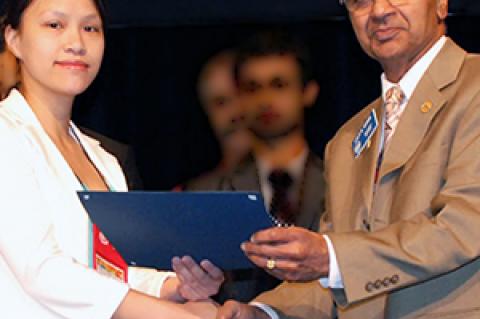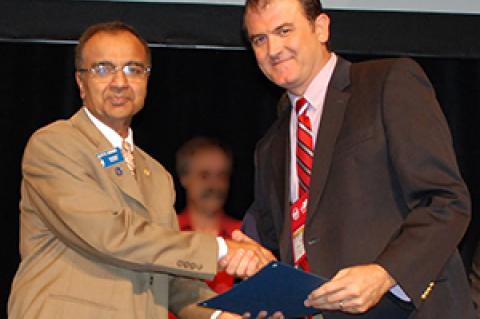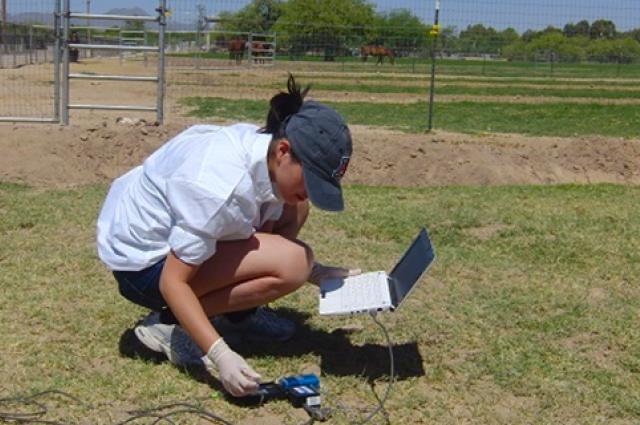Grad Students Honored for Food-Related Research
When it comes to feeding the world safely and affordably, biosystems engineers at the University of Arizona take their work seriously, and the world is taking notice.

Two UA graduate students received 2014 Superior Paper Awards from the American Society of Agricultural and Biological Engineers: One for her work in rapid detection of foodborne pathogens; the other for his research aimed at improving production of greenhouse crops.
Pei-Shih Liang, who received her PhD in agricultural and biosystems engineering and is now a post-doctoral fellow at the University of California, Davis, was recognized for her research on “Optofluidic Lab-on-a-Chip Monitoring of Subsurface Bacterial Transport.” Jeong-Yeol Yoon, president of the Institute of Biological Engineering and UA associate professor, co-authored the paper, which focused on advancing the use of lab-on-a-chip to quickly detect food contaminants, such as E. coli.
ASABE also honored Ehab Tamimi, who earned his master’s degree in biosystems engineering and is now working on a PhD in biomedical engineering at the UA, for his paper “Analysis of Microclimate Uniformity in a Naturally Vented Greenhouse with a High-Pressure Fogging System.” Tamimi’s study centered on low-cost climate control methods to improve quality and quantity of greenhouse crops.
Liang was on hand July 14 at ASABE’s 2014 international meeting in Montreal, Canada to receive her award. Murat Kacira, Tamimi’s mentor and associate professor of agricultural and biosystems engineering, accepted for the award for Tamimi and their co-authors.

The UA’s biosystems engineering program is jointly administered by the College of Engineering and the College of Agriculture and Life Sciences.
Annual ASABE paper awards are selected from articles that appear in the society’s publications of Applied Engineering in Agriculture, Transactions of the ASABE, Journal of Agricultural Safety and Health or Biological Engineering Transactions.
In photo at top of page, Pei-Shih Liang collects data for her study on foodborne contaminants.


